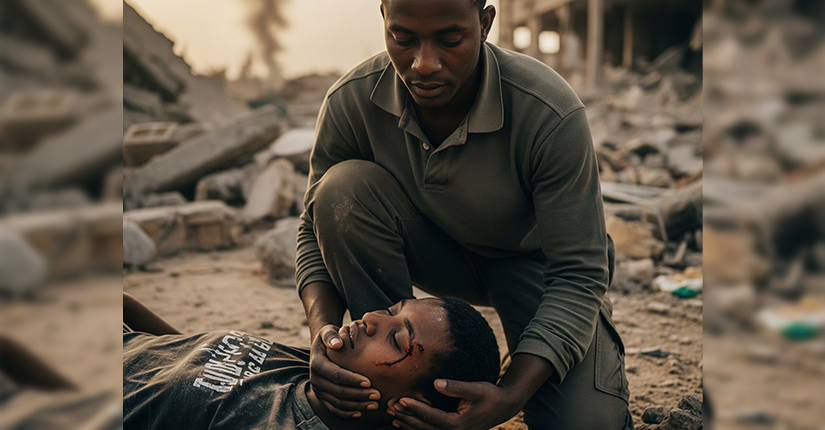- Clinic:
- 0733 945 717
- 0739 434 212

Cancer fear and denial ‘is killing thousands’
August 4, 2025
If you are well, stay away from hospitals
August 15, 2025Helping the injured in the face of tragedy

It’s difficult to comprehend how a whole community can continue to live in an obviously unsafe and condemned building. But there are several reasons why this is the case though. Think of the levels of poverty and desperation, and the human nature that demands some sort of shelter. For some, any place will do, they don’t have that many choices. Legislation and enforcement of safe housing standards is another matter altogether.
In true Kenyan spirit, we all rally towards each other in the face of tragedy. It wasn’t any different in Huruma. Scores of people immediately rushed to the site as soon as it was apparent that those who were trapped in the building needed help, and fast. This is pretty commendable. But from a medical viewpoint, you have to be aware of certain principles when trying to help individuals with unknown injuries.
The first precaution is to ensure your own safety. You cannot really help others if you get yourself injured in the process. And it doesn’t help to add yourself onto the tally of casualties. You must approach the disaster site with extreme caution, and in the right gear. If you happen to be a member of a trained group of first responders, this is obvious. If you are a lay person, the more the reason to be extremely cautious.
There will always be some sort of organized response in disaster zones. We are talking of the police, fire brigade, or some other specialized rescue teams like the Red Cross. Such teams have vast experience in coordinating rescues. It’s your duty to facilitate their efforts by obeying any directions they give, and not obstructing them in any way. You may be itching to help pull out an injured person from the rubble. But you may be so clueless that you might cause unintended harm, just by the way you handle the injured. Let the professional teams do it, or follow their instructions attentively.
There are other ways of helping without directly making your way to the site where disaster has struck. There will inevitably be pleas for blood donations, assisting with items of clothing, food and water, or even arranging some make-shift shelter for some. Appeals for contributions to a disaster fund may also come through. Whatever role you might play, however small, will go a long way in alleviating the immediate suffering of those affected.
We seem to court catastrophes, they happen too often in our midst. Sadly, we haven’t done enough yet to keep ourselves away from more preventable disasters. Next time it happens, choose your rescue role objectively. You may find yourself helping save lives.

